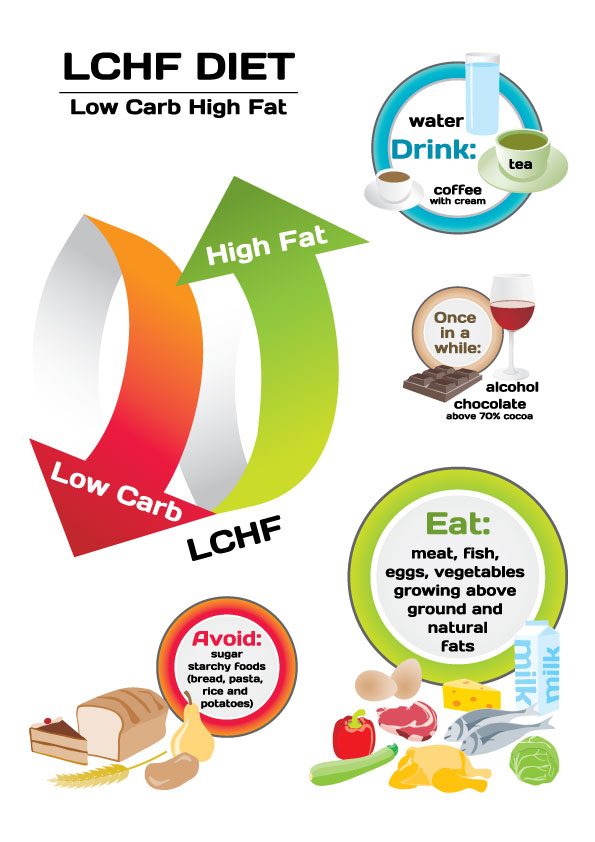A number of diets or lifestyle eating plans have gained popularity over the last few years. Amongst these is the Low Carb High Fat Diet.
THE HISTORY:
Low Carb High Fat Diets are not new. In the 1800s, William Banting, an obese London undertaker was prescribed a low carbohydrate diet to lose weight, by his doctor. So pleased with the results, he published a Letter on Corpulence addressed to the public to spread the word of the benefits of avoiding carbohydrates. Robert Atkins in 1972 published the Dr Atkins Diet Revolution advocating low carbohydrate consumption. However, due to its recommendation of high fat and protein content it was met be scepticism amongst the medical community. Recently, the Paleo Diet, which restricts carbohydrate intake, has gained popularity.
THE SCIENCE:
When carbohydrates are consumed they are broken down into glucose in the gut and absorbed into the bloodstream. Insulin, a hormone secreted from the pancreas, helps to keep blood glucose down. Insulin causes glucose to be taken up by the liver and muscles to produce energy. The downside is that insulin causes excess carbohydrates to be stored as fat. Exposure to large amounts of carbohydrates over a period of time can result in increased blood glucose levels (Type 2 diabetes) and/or obesity.
If the energy the body gains from carbohydrates is reduced, it needs to be replaced with an alternative fuel source. Proponents of the Low Carb High Fat Diet recommend replacing carbohydrates with saturated fats to provide energy.
THE BENEFITS:
Evidence exists that benefits from a Low Carb High Fat Diet may include weight loss, reducing the risk of Type 2 diabetes and fatty liver, and a reduction in abdominal discomfort and bloating. It is also possible that a Low Carb High Fat Diet may reduce the risk of dementia, Alzheimer’s disease and some forms of cancer.

This article is of a general nature. Individuals should consult an accredited healthcare professional before commencing any form of diet or eating plan.
